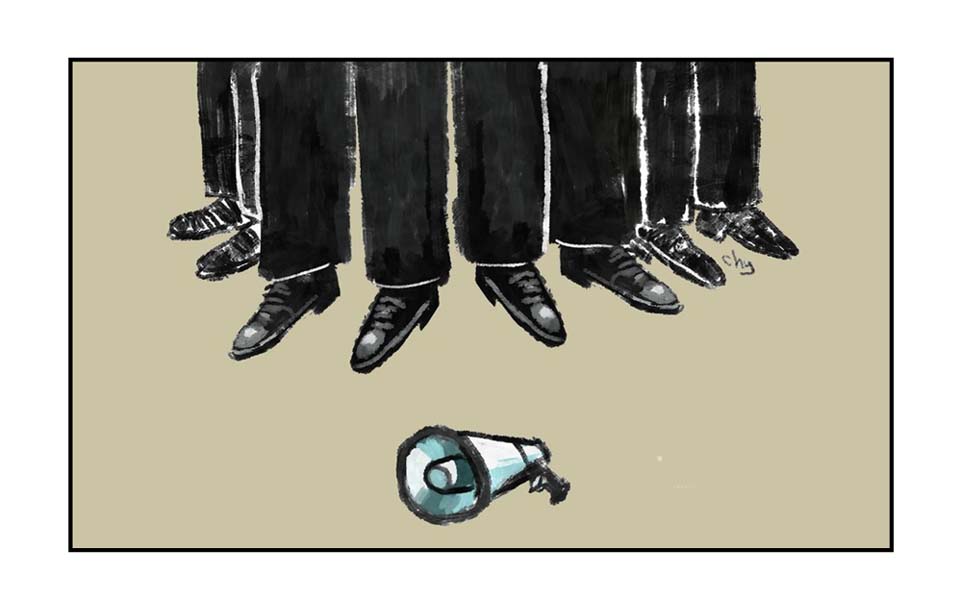
[From an oped piece in Kompas.id by Saiful Mujani Research and Consulting (SMRC) program manager and University of Indonesia political science doctorate program student Saidiman Ahmad titled "Joko Widodo's Political Legacy".]
The ten years of President Joko "Jokowi" Widodo administration (2014-2024) has notched up massive achievement in basic infrastructure development. This is believed to be important capital for Indonesia to achieve the goal of becoming a developed country. However Widodo has also left behind a very basic problem related to the erosion of democracy that never stopped, and has even grown worse.
An annual forum that brought together Indonesian observers in Canberra, Australia, recently raised the topic of the decline of democracy. Two Indonesianists, Eve Warburton and Shana Jeffrey, even presented a paper titled "The Edge of Competitive Authoritarianism".
The term competitive authoritarianism was introduced by Steven Levitsky and Lucan A Way (2010) to refer to the phenomena of countries that run a formal democratic system, but in practice democracy has been hijacked by the dominant political forces.
Levitsky and A Way criticized the terms used by many political scientists in countries that were in a transition towards democracy. According to the pair, a democratic transition is often not very appropriate to describe countries that formally recognise or use a democratic system, but where power is substantially controlled. They say the correct term is actually authoritarianism that is wrapped in democracy.
What should be accentuated is authoritarianism, not democracy, which is actually only a camouflage. Therefore, the two offer the term competitive authoritarianism.
Position of the media
The main characteristic of competitive authoritarianism is that democracy appears to be applied, but in fact power and competition are controlled. There are political parties, but the parties are controlled by the Palace. There are elections, but the results are arranged in such a way that the people have no other choice but those determined by the Palace. People are free to choose, but their imagination is limited to the choices the Palace supports.
In competitive authoritarianism, the people are allowed to be free to choose, but their thinking has been hegemonised. The means is by controlling information. The press seems free, but the large media companies only receive Palace support. Critical media remain alive and can speak out, but their reach is limited.
Marcus Mietzner's paper titled "Jokowi's Pyrrhic Victory: Indonesia's 2024 Elections and the Political Reinvention of Prabowo Subianto" (2024) recorded in detail how state cooptation of the media occurred systematically during the Jokowi era. It stated that in 2014 when television stations were generally fighting against or in opposition to Widodo. In 2019 however they switched to supporting Widodo.
Mietzner relates how one of the media owners who controlled around 40 percent of the market share in 2017 moved to support the government after being threatened with a legal investigation. The same thing was experienced by other conglomerate TV news owners and former political party leaders. They also moved in the direction of the government camp after facing similar threats.
As a result of this media operation, Widodo tended to get positive coverage in the mainstream media, with only a few specific media offering any critical scrutiny. "As a result, Jokowi enjoyed mostly generous coverage in the mainstream media, with only a few niche outlets offering critical scrutiny", said the Australian National University (ANU) professor.
Under the conditions of competitive authoritarianism, the mass media still exists. But the influential media is coopted by the dominant political power. Independent and critical media are still given space, but their reach is limited. Cooptation of the distribution of this information ensures that the image of the government or the ruling political group is maintained.
In his studies in Israel, Tamir Sheafe (2008) found that the media played a big role in shaping public perceptions of economic conditions. Media publications on economic conditions have a direct influence on how the public evaluates government performance in the economic field.
And also, in the end, this both directly and indirectly, affects the behaviour of voters. Perhaps this explains why the level of public satisfaction with the government's performance is relatively high, and was so even during the economic crisis due to the Covid-19 pandemic in 2020-2021.
[Abridged translation by James Balowski. The full article in Bahasa Indonesia can be read here: https://www.kompas.id/baca/opini/2024/10/21/warisan-politik-joko-widodo.]










